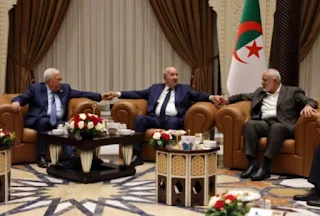
Putin visits Iran to participate in a summit with Erdogan and President
Kremlin spokesman Dmitry Peskov confirmed today, Tuesday, that Russian President Vladimir Putin will visit Tehran on July 19.
Peskov said that President Putin will hold talks with his Iranian counterpart, Ibrahim Raisi, and Turkish President Recep Tayyip Erdogan, within the framework of the meeting of leaders of the guarantor states of the Astana Process on the Syrian settlement.
He continued, "The president's trip to Tehran is already being prepared. There will be a meeting of the heads of the guarantor states of the Astana process to promote the Syrian settlement. In addition to the tripartite meeting, of course there will also be bilateral meetings and separate talks with the Turkish president," adding: "Yesterday we announced high-level contacts. The level between Putin and Erdogan, and the meeting will take place there."
The Iranian Mehr news agency had earlier quoted the head of the Iranian Parliament's Economy Committee, Mohammad Pour Ibrahimi, that President Putin would visit Iran next week.
"Potential consultations between Putin and my president are likely to focus on developing economic cooperation between Iran and Russia," Ebrahimi said.
The announcement of the visit coincides with US National Security Adviser Jake Sullivan saying that his country has information that Tehran is preparing to provide Moscow with hundreds of drones, and train Russian soldiers to use them.
In a meeting with his Iranian counterpart, on June 29, on the sidelines of the sixth summit meeting of the countries bordering the Caspian Sea, Putin confirmed that both countries are in constant communication on security issues, and that they have many things to talk about.
Raisi said, at the time, that Russian-Iranian trade relations are developing, and nothing will stop this development, commenting: "The agreements we reached are under implementation, and this indicates that the will of our two countries aims to develop trade and economic relations."































































